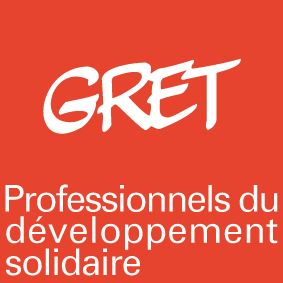GRET (Niger)

-
GRET is an international NGO, operating in about thirty countries on three continents, which aims to improve the living conditions of populations where inequality is rampant and promote more equitable and inclusive societies. Since 1994, GRET and IRD have been undertaking an innovative programme called Nutridev to sustainably prevent various forms of malnutrition in vulnerable population groups (children under two and women of childbearing age).
In 2020/2021, the Eurofins Foundation supported GRET's Koko Vita project, which is fighting chronic malnutrition in Niger. 47% of children under five suffer from malnutrition in Niger due to poor feeding practices and a lack of quality food. This malnutrition heavily affects the underprivileged neighbourhoods of Niamey. The COVID-19 outbreak threatened to worsen this population's situation, as food needs were already unmet before the crisis.
In this context, the project's objective during COVID-19 was to reduce malnutrition among young children and strengthen the resilience of the population in the face of the crisis. The project ensured the long-term availability of quality fortified local products in six vulnerable neighbourhoods of Niamey by testing an innovative distribution model named “Koko Vita” during this time.
Funding from the Eurofins Foundation made it possible to expand the network of street vendors operating within the project from 28 to 40. As a result, the funding helped vendors distribute 12,000 fortified meals and feed 1,200 children aged between 6 and 24 months in 2020/2021.
It also helped strengthen social communication actions on good feeding practices and the use of local fortified foods as part of a balanced and varied diet, and enhanced street vendors' skills in management and marketing.
Nearly 40,000 meals of fortified Misola porridge were sold between June and October 2021.
A monitoring and evaluation system was established to monitor many parameters, including the number of meals distributed by street vendors, the quality of the fortified meals distributed, local awareness about the fortified meals, and the satisfaction of consumers and street vendors.
In addition, 40 dynamic and motivated women improved their knowledge and skills of good nutrition and hygiene practices and sales techniques, contributing to malnutrition prevention in their areas and generating income for their households. The increase in their revenues has a positive impact on women's economic empowerment and helps reduce gender inequality.
Local authorities and health centre staff work closely with GRET, helping to identify and monitor street vendors and mobilise the community.
In 2022/2023, the Eurofins Foundation renewed its support to GRET for the construction of drinking water supply and sanitation infrastructures in the Stung Sen basin, in Cambodia.
The project objective was to improve access to water and sanitation for the inhabitants of Ruos Rean (2600 inhabitants) and Rieb Roy (2274 inhabitants) communes in the Preah Vihear Province.
The Eurofins Foundation supported the selection of the four priority primary schools to develop sanitation facilities in. The GRET team assessed all nine schools in the two communes and looked at different criteria through direct observation and interviews with the head of each school: the conditions to access latrines and water, the hand-washing activities, the management of solid waste, and the schools commitment.
In addition, the team conducted a first mission assessment to develop the feasibility study and conduct water testing to select the best water source for the supply system (bacterial and chemical). This part of the study aims at selecting the source of the water to be supplied, the type of treatment, the volume of water to be produced and the length of the network. The water systems are under design and the construction company will be recruited early 2024. The water systems will include the water source, a water treatment facility and the piped network to the households.
In parallel, the project is contributing to a change among decision-makers and political leaders. The local authorities, including the commune and village chief, as well as the provincial government, have expressed their full satisfaction and support for the project's objectives. This positive response indicates a shift in their perspectives and decisions regarding the project and its potential impact on the community. The decentralisation of water management to communities has played a crucial role in this transformation.


This project contributes to the following United Nations' Sustainable Development Goals



















































